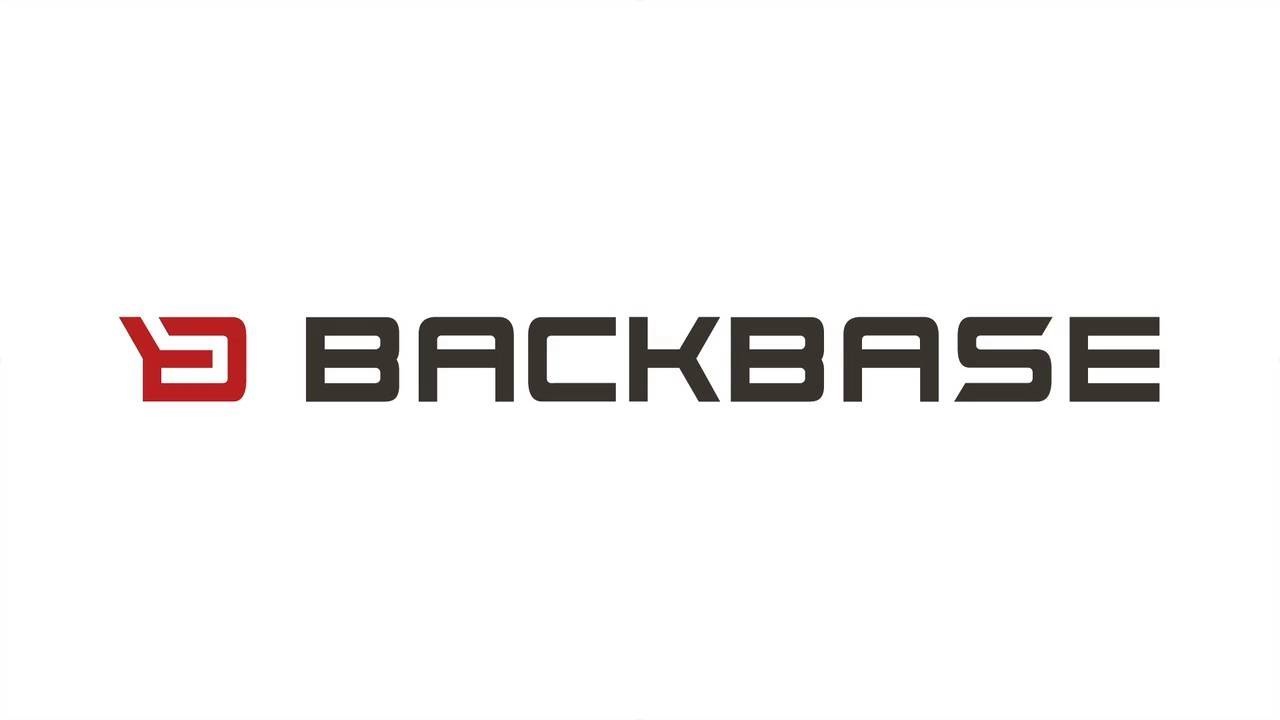Published
- 07:00 am

The leading FinTech Modulr will host its first Accountancy Innovation Roadshow on the 20th of February in Edinburgh, as the first of a six-city tour of the UK. The series of events forms part of the FinTech’s £20m investment to deliver simple, secure and reliable payments services for accountants and their SMEs clients.
Payments, designed specifically for the needs of the UK’s 5.7m SMEs, have been historically neglected by established financial services while the recent fintech revolution has struggled to expand its reach across the UK. Modulr is changing this by using the Roadshow Series to drive awareness of how accountants can make payments an advantage for themselves and their SME clients, freeing them from payment inefficiencies hidden in legacy systems.
The Roadshow Series will first visit Edinburgh on the 20th of February, bringing together forward-thinking accountants to discuss the real impact of technology on the accountancy business model, and the SME clients they serve. The event will feature a morning of networking, panel discussions, round tables and useful insights which accountants can apply to their own businesses in order to fuel growth for their clients.
The first Accountancy Innovation Roadshow will take place at Whitespace, Norloch House, 36 King's Stables Road, Edinburgh, EH1 2EU, 08:30-12:00. The Roadshow Series will also visit Birmingham, Manchester, Belfast, Cardiff and London throughout the year.
Commenting on the launch of the first event, Myles Stephenson, CEO and founder of Modulr comments: “For too long the UK’s SMEs and their accountants have missed out on the latest payment innovations from the world-leading fintech industry on their doorstep. This lack of access to the fintech ecosystem has limited their ability, leading to slow payments, financial headaches and unnecessary hours pulled away from the core of their business - delivering greater value to clients.
“An accountant powered by the latest payments technology means SMEs have better control over their money and future growth, all through a platform that’s secure and simple, and more reliable than many established financial services.”
In August 2019, Modulr was chosen from 76 applicants to receive a £10m grant from the Capability and Innovation Fund (CIF), part of the RBS Alternative Remedies Package. Modulr was awarded the grant based on its vision to provide SMEs and their accountants with simple, secure and reliable payment capabilities. Modulr will be partnering with accountancy practices and software providers, including Sage, to roll out improved payment functionality to the UK’s SMEs.
Read Modulr’s full commitments and roadmap here.
Related News
- 08:00 am

ABN AMRO Ventures is investing in Dublin-based Fenergo, a provider of Client Lifecycle Management (CLM) software. The company is a proven market leader within the operational CLM, Know Your Customer (KYC), Anti Money Laundering (AML) and Client Due Diligence (CDD) space, all of which are key priorities for ABN AMRO and the financial industry in general.
Fenergo provides award-winning digital transformation, customer journey and client lifecycle management (CLM) solutions and services to global financial institutions. Its rules-driven, state-of-the-art CLM platform manages the client lifecycle from lead and prospect management through onboarding, product and account management, maintenance, client servicing and triggered events tooffboarding.
Established in 2009, Fenergo has demonstrated continuous growth as a result of strong adoption among major global financial institutions spanning capital markets, asset management, retail, commercial, business and private banking and wealth management. Today ,Tte company has a strong global customer base. ABN AMRO has been a customer of Fenergo’s since 2017.
Marc Murphy, CEO, Fenergo: “We are thrilled to join ABN AMRO Venture’s investment portfolio. As a client, ABN AMRO is aligned with Fenergo’s vision to create best-in-class solutions that enable global financial institutions to uphold increasing and evolving regulatory requirements whilst delivering transformative client experiences. Working alongside our other shareholders, Insight Venture Partners (IVP), DXC Technology and BNP Paribas, we very much look forward to continuing our innovation and rapid growth journey.”
Hugo Bongers, director ABN AMRO Ventures: “We are very happy to add Fenergo to our investment portfolio. This investment will contribute to ABN AMRO’s strategic priority to build a future proof bank, which includes fighting financial crime. We are impressed with the management team and the solution Fenergo offers. Moreover, this gives us additional exposure to a group of tier one investors.”
The investment in Fenergo is the tenth investment by ABN AMRO Ventures, previously named ABN AMRO Digital Impact Fund. ABN AMRO Ventures is the bank’s corporate venture fund and makes strategic investments in innovative technology companies to boost and accelerate and our digital transformation. The fund has assets of EUR 100 million and positions in Trifacta, Thetaray, Tealium, Tink, BehavioSec, solarisBank, Ockto and Crosslend. It also previously invested in Cloud Lending Solutions (exit in 2018).
Related News
- 01:00 am

Riverbed® today announced the results of a survey which found that over 70% of C-Suite decision makers believe business innovation and staff retention are driven by improved visibility into network and application performance. The survey findings unveiled in the ‘Rethink Possible: Visibility and Network Performance – The Pillars of Business Success’ report cites a positive correlation between effective technology and company health, a finding that is supported by the fact that 86% of C-Suite and IT decision makers (ITDMs), and 87% of business decision makers (BDMs), reveal that digital performance is increasingly critical to business growth.
Slow running systems and a lack of visibility
Three-quarters of all groups surveyed have felt frustrated by current network performance, with IT infrastructure being given as the key reason for the poor performance. This problem is exacerbated by a lack of full and consistent visibility, as one in three ITDMs report that they don’t have full visibility over applications, their networks and/or end-users. Furthermore, almost half of the C-Suite (49%) believe that slow running and outdated technology is directly impacting the growth of their businesses. This highlights the importance of implementing new technology to drive productivity, creativity and innovation.
Business priorities and challenges
Business priorities and challenges are evolving, so the technology they rely on needs to advance too. Over three quarters (76%) of ITDMs acknowledge that their IT infrastructure will have to change dramatically in the next five years to support new ways of doing business. A further 95% of all respondents recognise that innovation and breaking boundaries is crucial to business success, emphasising the need to embrace new technology. This may be why 80% of BDMs and 77% of the C-Suite say they believe that investing in next-generation technology is vital.
Commenting on the research findings, Colette Kitterhing, Senior Director UK&I at Riverbed Technology, said: “All leaders recognise that visibility, optimised network infrastructure, and the ability to accelerate cloud and SaaS performance are the next frontier in business success. Given this, it’s time the C-Suite, business decision leaders, and IT decision makers come together to invest in the right solutions, prioritise measurement, and place visibility and infrastructure at the top of their agenda.”
Kitterhing continued: “At Riverbed, we are helping businesses evolve their capabilities, whether it’s by monitoring networks and the apps that run on them, application performance, or updating the network infrastructure that underpins their digital services. We fundamentally believe this is the key to supporting our customers’ staff and their ambitions, driving innovation, creativity, and helping them Rethink what’s possible.”
Rethink Possible: Evolving the Digital Experience
With over 80% of all leaders (82% C-Suite, 84% BDMs and ITDMs) agreeing that businesses must rethink what’s possible to survive in today’s unpredictable world, technology needs to be an enabler in the process. Riverbed’s portfolio of next-generation solutions is giving customers across the globe the visibility, acceleration, optimization and connectivity that maximizes performance and visibility for networks and applications.
Related News
- 08:00 am

Digital proxy voting by institutional investors is expected to become a bigger focus at Annual General Meetings in 2020 after the successful deployment in Australia of Citi’s ProxymitySM voting platform, in collaboration with Computershare, during the recent AGM season.
In its first large-scale adoption in Australia in late 2019, Proxymity was employed for 561 Australian shareholder meetings with votes covering A$86 billion (US$58 billion) shares being performed across the Proxymity Platform.
The near-real time speed of the platform compares with the traditional manual, often paper-based, process that can involve many separate steps, including share registries, sub-custodian, global custodian and the investor’s designated voting agent.
The Proxymity Platform enables companies and investors to connect digitally, making the process more accurate and more transparent.
Companies deliver digital meeting notifications and agenda information in close to real time and receive quicker communication of investor votes. The platform recorded vote transmission times of as low as 27.5 seconds for European investors that voted via the ISS ProxyExchange Platform.
In addition, the Proxymity Platform provides the capability for a company to see detail on the beneficial owner of the shares voted rather than just the custodian. This is a significant enhancement to the voting process, enabling companies to see which investors voted their shares.
Citi and Computershare found that institutions that used the Proxymity Platform for voting benefited from three or more additional days to research AGMs, determine their intentions and cast their votes when compared to the existing process.
With more custodians and share registries expected to sign up to Proxymity this year, Citi and Computershare expect that more companies and AGMs will benefit from using the technology in 2020.
Paul Conn, President of Global Capital Markets at Computershare, said: “Proxymity brings corporate issuers and their institutional economic owners much closer together, making the end-to-end proxy voting process more efficient, more transparent and more accurate. In particular, the added transparency of having the institution as an integrated part of the voting process offers tangible benefits to companies.
“The Proxymity Platform is yet another example of our commitment to providing innovative digital solutions that address challenges faced by our clients and their stakeholders. We look forward to rolling Proxymity out more widely in 2020.”
Martin Carpenter, Head of Securities Services at Citi Australia, said:
“The Proxymity Platform will revolutionise investor communications. Institutional investors often hold shares in hundreds of companies, and they choose to hold their shares via custodian banks, and so the share voting process can be complex and time consuming. Via Proxymity, we are streamlining the process and removing many of the associated pain points, and, in the Australian AGM season, this has been shown to provide a better experience for investors and issuers alike.”
Ian Matheson, Chief Executive Officer of the Australasian Investor Relations Association (AIRA), said:
“Shareholder voting is a crucial pillar of the governance process and one where speed and accuracy are paramount.
“Proxymity has the potential to remove many of the processing pain-points traditionally experienced around AGMs, and will bring greater transparency and efficiency to how companies interact with their institutional holders and vice versa.”
Related News
- 08:00 am

Amaiz, the banking and bookkeeping service for small businesses owners, has announced its partnership with ValidSoft, the company at the leading edge of voice biometric technology, a solution that secures all transaction channels. The partnership will enable Amaiz to offer next generation voice biometric security.
Amaiz is developing a reputation for its leading-edge security methods and experiential features. Voice biometric verification is considered the strongest method of proving someone’s identity. It’s more flexible and accurate than other security methods and is popular with customers, as they don’t need to remember passwords or security devices.
Amaiz Managing Director, Steve Taklalsingh commented, “This powerful partnership will enable us to give our customers an experience that is secure but simple. Our users are busy people, often trying to fit their interaction with us between customers. ValidSoft’s partnership with Amaiz will help us deliver our mission to provide hassle-free banking for our hardworking customers.”
ValidSoft CEO, Pat Carroll agreed; “Amaiz are at the forefront of digital banking and innovation in financial services; they’re prepared to think differently about security and are passionately concerned with meeting and exceeding their customers’ expectations in new and exciting ways. Our world leading voice biometric solution will enable them to deliver on those expectations. We look forward to a fruitful partnership.”
Related News
- 02:00 am

With the adoption of distributed ledger technology (DLT) expected to grow in financial services, The Depository Trust & Clearing Corporation (DTCC), the premier market infrastructure for the global financial services industry, today published a white paper, Security of DLT Networks, that recommends establishing a comprehensive industry-wide DLT Security Framework to review existing security guidelines, gaps in the approach to DLT security, and the need for increased standards. The paper also suggests the possible formation of an Industry Consortium to spearhead this topic.
According to the paper, the establishment of a DLT Security Framework would:
- Assist in the completion of risk evaluations across an individual firm’s security assessments via best practices and tools, such as risk management & oversight, cybersecurity controls, third-party management, and incident & event management.
- Address key aspects of the DLT key management lifecycle, including DLT-specific security considerations associated with the creation, maintenance, storage and disposal of sensitive information.
- Provide security guidance and practices respective to account access with the use of cryptographic hash functions, standard authentication methods and bridging the security gap between DLT and traditional IT environments.
“With adoption of DLT across the financial services ecosystem likely to continue to increase in the coming years, we need to be certain that all DLT-related security risks are identified and addressed to maintain the safety and stability of the markets,” said Stephen Scharf, Chief Security Officer at DTCC. “DLT offers great potential, but as with any new technology, it also comes with certain risks. Traditional security measures may not be adequate, so it is critically important that this topic is top of mind for any DLT implementation.”
To move forward, DTCC calls for a coordinated strategy around the development of a principles-based framework to identify and address DLT- specific security risks. The firm will leverage its unique role within the financial services sector to begin the conversation across the industry.
“As is common in IT security communities, frameworks must be widely available, generally agreed upon, and commonly adopted. As best practices mature, they can be adopted into a formal framework and used for financial industry participants and regulators alike,” added Scharf.
Related News
- 05:00 am

Backbase, the world’s leading digital banking platform provider, is delighted to announce Thomas Fuss as Chief Technology Officer, effective January 2020.
With a proven track record of leading forward-thinking engineering and delivery teams, Thomas will lead Backbase’s overall technology strategy. He will particularly keep a strong focus on leveraging open standards and native cloud technologies to accelerate the development of next generation omni-channel digital banking solutions.
On his appointment, Fuss said: “During my years at Backbase, the industry has evolved rapidly. However, our mission has remained the same – to enable financial institutions to create a superior customer experience. In my new role, I drive Backbase’s technology strategy, architecture and innovation roadmap, with a commitment to enabling our customers’ cloud-based go-to-market strategies. I’m excited to dive in and make great things happen.”
Jouk Pleiter, CEO of Backbase, added: “In the last three years, Thomas has been a major contributor to our technical strategy and has fostered a strong engineering culture at Backbase. Thomas brings a powerful combination of technical credentials and operational experience to this new CTO role. Our cloud platforms are the foundation for our next phase of innovation and growth as a company, and Thomas is the ideal candidate to lead this initiative.”
Prior to joining Backbase, Thomas honed his skills and experience in software engineering and digital transformation at ING Bank, and by co-founding Payconiq, the payment platform. Formerly Backbase’s VP of Technology, Thomas has been the driving force behind numerous digital transformation programmes and strategic product development initiatives inside Backbase.
Related News
- 05:00 am

Wolters Kluwer’s Compliance Program Management (CPM) business has won two major awards for its OneSumX CPM for Regulatory Change Management and OneSumX CPM for Operational Risk software, winning “Solution of the Year” accolades in Finance Monthly magazine’s hotly contested FinTech Awards 2020. Finance Monthly is a global publication from the Universal Media stable, providing news, comment and analysis, distributed to more than 195,000 people each month.
OneSumX CPM for Regulatory Change Management tracks regulatory changes across a list of global agencies and organizes them to create structured, value-added content that is paired with an easy to use software solution. Clients receive content that flows through a single data feed format, and by linking regulatory changes to their respective regulatory rules in OneSumX CPM’s customizable, constantly updated regulatory library, their reporting is more accurate and efficient.
OneSumX CPM for Operational Risk, meanwhile, enables organizations to meet and adapt to internal operational risk practices by automating and simplifying the process of collecting, storing, analyzing, tracking and reporting on information relevant to operational losses, risk and control assessments, definition and management of key risk indicators and scenarios.
“Our OneSumX CPM solution simplifies the operational risk management and compliance process. As a result it helps financial institutions more effectively manage regulatory compliance and operational risk management,” said Steve Meirink, Executive Vice President and General Manager for Wolters Kluwer’s Compliance Solutions. “These awards are further independent industry recognition of our leading position when it comes to providing our clients with the regulatory change management and operational risk solutions that they require. On behalf of Wolters Kluwer I would like to thank the editors at Finance Monthly for these accolades.”
Wolters Kluwer CPM is part of Wolters Kluwer’s Compliance Solutions business, a market leader and trusted provider of risk management and regulatory compliance solutions and services to U.S. banks and credit unions, insurers and securities firms. The business, which sits within Wolters Kluwer’s Governance, Risk & Compliance division, helps these financial institutions efficiently manage compliance obligations tied to loan and deposit origination transactions and workflows, manage risk and other regulatory compliance obligations, and gain the insights needed to focus on better serving their customers and growing their business.
Related News
- 03:00 am

While a burgeoning tech industry, education and the value of the pound have made UK tech start-ups an attractive target for investors outside the UK – with investment in UK tech start-ups growing 44 percent to £10.1bn in 2019 – businesses need to be aware that they may only have a short window to attract investors, city law firm Fox Williams LLP has warned. With a large proportion of investment dependent on the talent in place at start-ups, an inability to attract and keep the best and brightest talent post-Brexit could turn away investors. At the same time, as markets such as FinTech grow, they become more attractive areas for technology giants such as Apple or Facebook to invest in – meaning start-ups may only have a limited time to grow before their market is taken over.
“London’s position as the number one destination for tech investment in Europe isn’t guaranteed for ever,” said Jonathan Segal, Partner at Fox Williams. “While the value of the pound and the fact that businesses, talent, regulators and investors are all clustered in a single city help make London start-ups attractive for investment, it is quite possible that this will change. At present, UK start-ups are seen as a low-risk investment. Yet changes to the sterling exchange rate, or to immigration and employment laws that make it harder to attract and keep talent, could change this. Start-ups and growth companies will need to ensure they are doing all they can to attract investment; understand where their funding is coming from; and have both a clear final goal and a route mapped out.”
As it becomes harder to differentiate and attract investment by creating a never-before-seen product or service, so start-ups need to demonstrate their value through their talent, their professionalism, and by showing a clear path to profitability. This means not only having skilled personnel in place and being able to point to an experienced management team, but making certain that they will not be negatively affected by any changes in immigration law.
Fintechs will want to help EU citizens already present in the UK and arriving in 2020 to stay long term by ensuring they apply for settled status, providing advice on obtaining endorsement by Tech Nation under the Global Talent visa route and ensuring that UK based companies apply for a sponsor licence if they plan to recruit from overseas from 2021.
At the same time, start-ups need to demonstrate that they are taking the right advice. For example, most law firms will have a tech practice that can advise start-ups. However, for those in specialised sectors such as FinTech it is essential to employ advisers that also have financial services expertise.
As well as demonstrating their value and professionalism, start-ups need to know who is funding them, and ensure they have done relevant due diligence. The right advice will again be critical here, to ensure that regulators do not veto any investment in, or takeover of, any regulated business in the financial services sector, in particular FinTechs. Yet even if everything is clear from a regulatory perspective, start-ups need to be confident that they are completely happy to be funded by an investor, and have not missed any factors that might damage their reputation.
“This is no time for complacency,” continued Jonathan Segal. “While investment is increasing, it is not infinite. FinTechs and other start-ups that cannot show that they have prepared themselves to succeed with the talent, the professionalism, and the right attitude to advice will soon find themselves losing out to better prepared competitors. At the same time, organisations need to lobby for the support they need – such as ensuring clear and favourable post-Brexit immigration and employment laws are in place so they can plan as appropriate.”
“Businesses should consider seeking strategic immigration advice at an early stage, to help ensure they can recruit the talent they need into the UK,” added Segal. “It’s vital that employers in the tech space are aware of and adhere to the correct processes and systems to ensure that the business is able to manage flow of talent in a seamless and orderly way. The UK Government is keen to attract highly skilled tech talent to the UK and in light of Brexit and the new immigration system being introduced in the UK, it is critical that companies seek advice to ensure that talent mobility is not an issue.”
Related News
- 06:00 am

Centage Corporation (www.centage.com), leading provider of cloud financial software that transforms how businesses budget, forecast, analyze and report, announced today that it has promoted Nate Burnes into the newly created role of Vice President of Customer Success, reporting directly to the CEO of Centage. In his new role, Burnes will oversee Centage’s Consulting, Customer Success, Customer Advocacy, Enablement and Support teams to ensure the best possible experience for all Centage customers, keeping a pulse on customer needs and identifying areas to help customers receive increasing value from their relationship with Centage.
Prior to his promotion to VP of Customer Success, Burnes served as Director of Product Management, where he gained deep expertise in processes, customer use cases, and functionality available in Centage’s Planning Maestro platform. Prior to Centage, Burnes held positions in product management, consulting, and business management at divisions of Virgin Pulse, IBM and Accenture. In his early career, Nate was a financial analyst at Staples where he played a key role in a company-wide corporate performance management initiative. Nate holds an MBA from Cornell University.
As part of his role, Burnes will develop and rollout customer-facing events, establish an advisory board and user groups designed to strengthen relationships with customers, and ensure that Centage grows and evolves in ways that meet customers’ most pressing business needs. “We, at Centage, are 100% committed to our customer’s happiness. This position formalizes Centage’s commitment and investment into the organization that helps each customer solve their most important business needs,” said Burnes.
“Our creation of a senior level position and single organization laser focused on customer success is a direct reflection of our dedication to our customers. We felt that in order to ensure our customers are successful, we needed an advocate on the executive team that would be dedicated to meeting and exceeding customer expectations, not just with our current product suite, but also in how they’d like to see it evolve. We were impressed with Nate’s comprehensive vision of what customer success means, and his view that no effort is ever quite done, that evolution and learning is always required,” said John Murdock, CEO of Centage. “A company that stops learning from its customers is a company uncommitted to customer success.”
The formal creation of a Customer Success department is just one of many customer focused initiatives Centage will invest in during the coming year.









